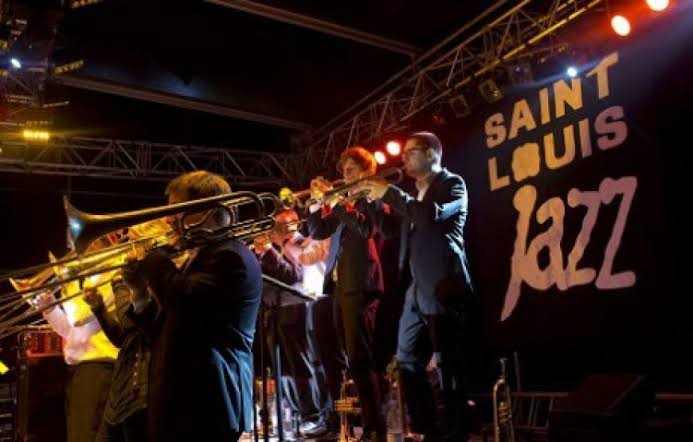Lively West Africa offers many fascinating cultural experiences that attract visitors and include them in history, customs, and communal spirit. Examining the 10 best cultural events in West Africa will reveal a tapestry of celebrations, music, dance, art, and ancient customs displaying the diversity and past of the region. Two examples of culturally significant and magnificent architecture are the ancient mud-brick mosques of Mali, including Djenné’s Great Mosque, and the Voodoo Festival in Benin with its spiritual ceremonies and energetic events drawing visitors from all around the world. Drumming and royal processions during the Ashanti celebrations in Ghana transports you to nations almost hundreds of years ago.
Riding in elegant attire, horsemen from Nigeria’s Durbar Festival highlight their northern roots. Nights people will never forget at the Saint Louis Jazz Festival in Senegal combine African rhythms with music from all around the globe. The FESPACO film festival in Burkina Faso demonstrates the quality of African films in narrative telling. Traditional marketplaces like those in Accra and Lagos feature many crafts, delicacies, and trade customs from the region. By sampling jollof rice or visiting its revered stone circles, visitors can interact with the history and cuisine of the nation. Real, soul-stirring adventures that will last long after the trip is ended are found in West Africa. Its cultural treasures are deeply ingrained in custom and culture.
Top Ten Worthwhile Cultural Experiences In West Africa
10. Portuguese Heritage in Cape Verde
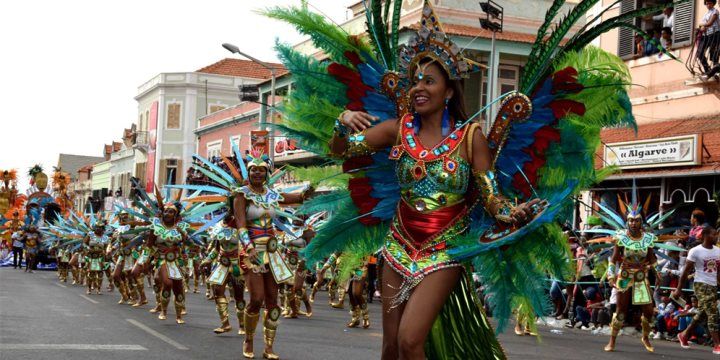
Cape Verde’s islands, shaped by Portuguese colonization from 1462 to 1975, blend African and European influences into a captivating cultural experience. Cidade Velha, a UNESCO World Heritage Site on Santiago Island, boasts colonial architecture like the Church of Nossa Senhora da Conceição and Fort Real de São Filipe, reflecting Portugal’s historical footprint. The Creole culture thrives in music, with soulful *morna* melodies and lively *funaná* rhythms echoing through festivals. Culinary traditions shine with *cachupa*, a hearty stew of corn, beans, and meat, paired with spicy *catchup* sauce. Visitors can explore cobblestone streets, engage with local artisans, and savor dishes that fuse African and Portuguese flavors. This unique heritage, set against stunning island landscapes, offers a deep dive into a culture shaped by centuries of cross-continental exchange, making it a must-visit for those seeking West African cultural richness.
9. Lake Retba Salt Collectors, Senegal
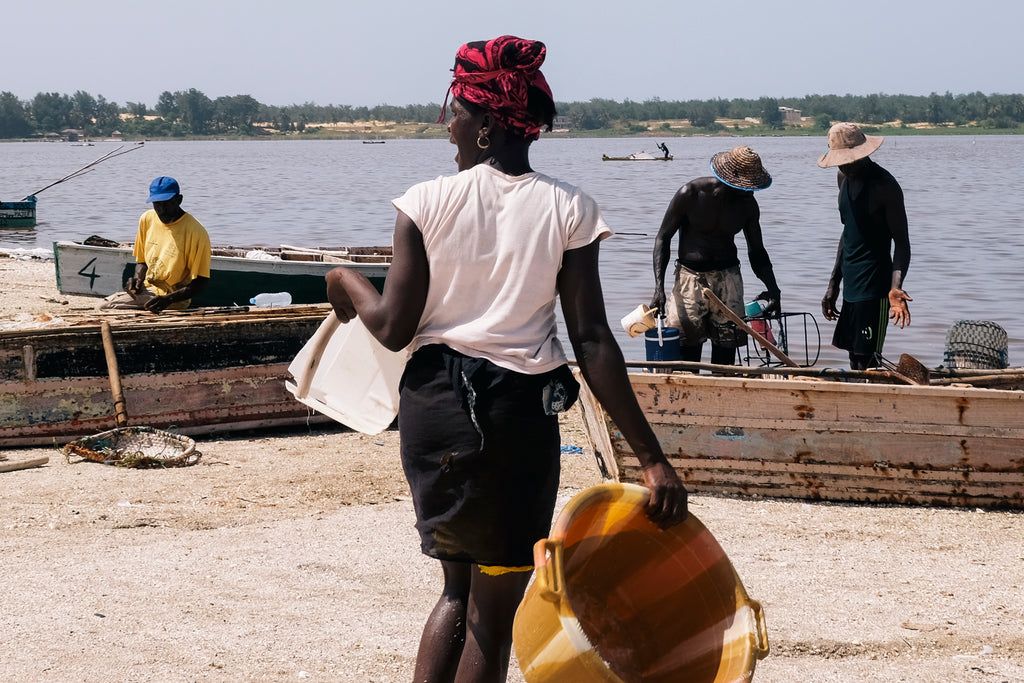
Lake Retba, Senegal’s striking pink lake near Dakar, draws visitors with its surreal hue caused by algae and salt-loving bacteria. The lake is a hub for traditional salt harvesting, where women use time-honored methods to gather salt from the water’s edge. Engaging with these communities reveals their resilience and connection to the land, offering a glimpse into Senegal’s cultural fabric.
Nearby Fulani villages welcome travelers with warm hospitality, often led by the village Chief, sharing stories of nomadic traditions. The experience, featured in tours like Continent Tours’ 8-day Senegal itinerary, combines natural wonder with cultural immersion. Visitors can witness the labor-intensive process of salt collection and explore local markets, where crafts and foods reflect daily life. This destination, blending environmental marvels with human stories, captivates those eager to connect with West African traditions and the enduring spirit of its people.
8. Bijago Sacred Sites and Ceremonies, Rubane, Guinea-Bissau
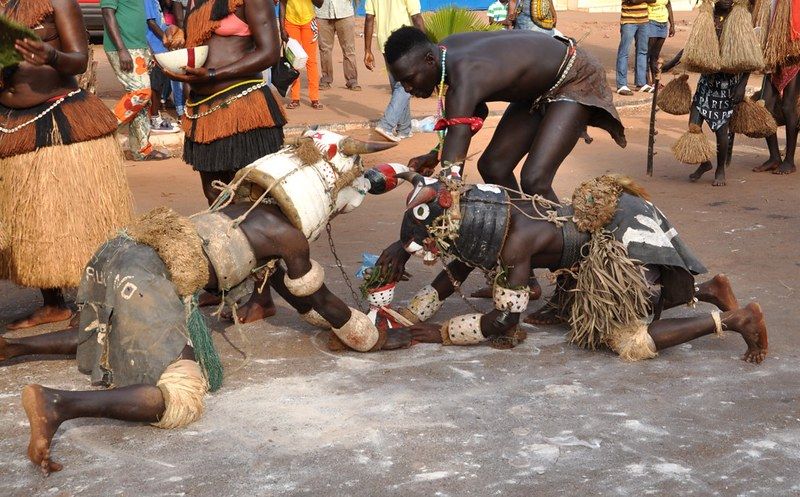
The Bijagos Islands, a UNESCO Biosphere Reserve off Guinea-Bissau, are home to the Bijago people, whose matriarchal society and sacred rituals offer a profound cultural experience. In Rubane, visitors witness ceremonies featuring intricate masks, rhythmic dances, and music that honor ancestral spirits and nature. Sacred forests and islands, where certain activities are taboo, reflect the Bijago’s deep spiritual bond with their environment.
These traditions, preserved despite modern influences, showcase a unique cultural identity. Exploring the islands’ biodiversity, including rare saltwater hippos and sea turtles, complements the cultural journey. Guided tours provide access to villages where elders share oral histories, offering insights into a society where women hold significant roles. This experience, far from mainstream tourism, immerses travelers in Guinea-Bissau’s living heritage, making it a hidden gem for those seeking authentic West African culture.
7. Dogon Masks and Rituals, Dogon Country, Mali
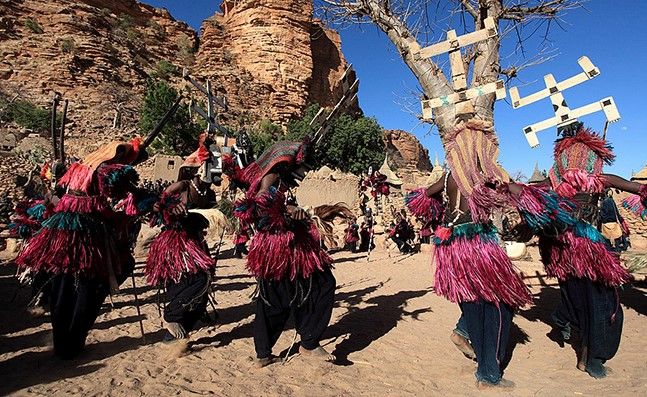
Dogon Country, near Mali’s Bandiagara Escarpment, is a UNESCO World Heritage Site where the Dogon people’s artistry and spirituality shine. The *dama* ceremony, a funeral ritual, features vibrant mask dances that honor the deceased and connect to ancestral spirits. These masks, carved with intricate designs, represent animals, ancestors, or mythical beings, embodying Dogon cosmogony.
Visitors can explore cliffside villages with traditional granaries and Tellem cave dwellings, learning about the community’s social and spiritual structure. The Dogon’s knowledge of astronomy, including beliefs about the Sirius star system, adds depth to the experience. Engaging with local guides reveals stories of resilience and tradition passed down through generations. This cultural journey, blending art, ritual, and history, offers a window into Mali’s rich heritage, captivating travelers eager to explore West African traditions in a remote, awe-inspiring setting.
6. Kunta Kinte Ancestry, Juffureh, Gambia
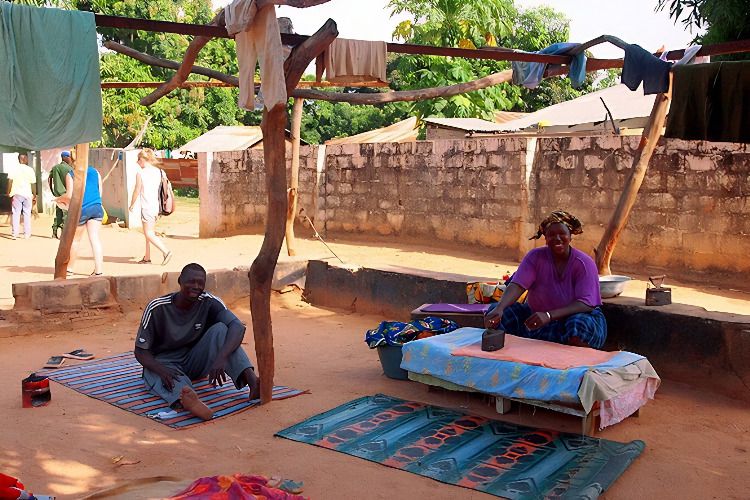
Juffureh, a village on the Gambia River, is renowned as the birthplace of Kunta Kinte, the central figure in Alex Haley’s *Roots*. This destination offers a poignant exploration of the transatlantic slave trade’s impact.
Visitors can tour the village museum, which details Kunta Kinte’s life as a Mandinka man captured and enslaved, and visit Kunta Kinteh Island, a UNESCO World Heritage Site with remnants of colonial forts. Local guides, often descendants of the community, share oral histories that connect to the African diaspora. The experience highlights the resilience of Gambian culture and its global significance, as families maintain traditions despite historical upheavals. Walking through Juffureh’s streets and engaging with locals fosters a deep understanding of this shared history, making it a powerful stop for cultural travelers seeking to trace West African heritage.
5. Kente Cloth History, Bonwire, Ghana
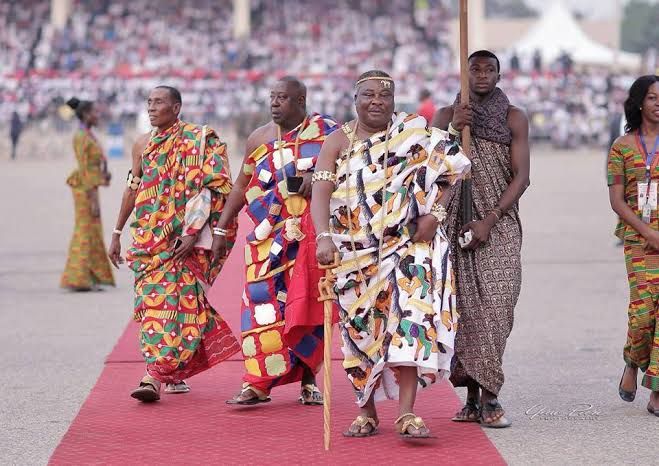
Bonwire, near Kumasi, Ghana, is the epicenter of Kente cloth, a vibrant textile symbolizing Ghanaian identity. This handwoven fabric, made from silk and cotton, features intricate patterns with meanings tied to Ashanti culture, such as unity or wisdom. Legend traces Kente’s origins to a spider’s web, with weaving techniques refined over centuries.
Visitors can watch skilled artisans at work, using traditional looms to create colorful designs, and even try weaving themselves. Workshops in Bonwire explain the symbolism behind each pattern, used for ceremonies like weddings and funerals. The village’s vibrant market offers Kente products, from clothing to accessories, showcasing Ghana’s craftsmanship. This experience, rooted in Ashanti heritage, celebrates one of West Africa’s most iconic art forms, drawing cultural travelers to explore its history and creativity.
4. Contemporary Art and Jazz, Dakar & Saint Louis, Senegal
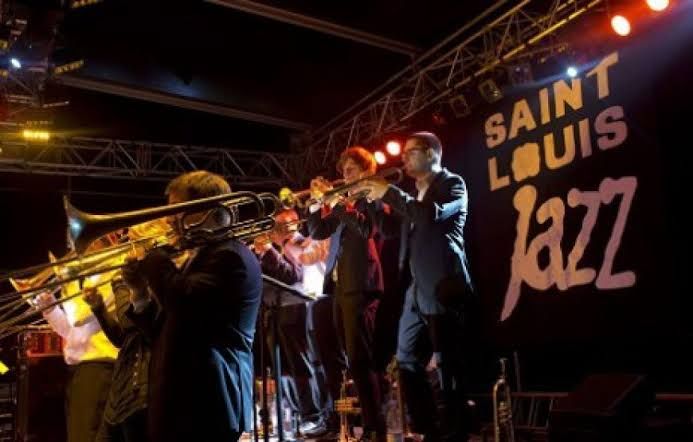
Senegal’s cultural vibrancy shines in Dakar and Saint Louis, where contemporary African art and jazz create a dynamic experience. Dakar’s Dak’Art biennial, a leading African art event, showcases paintings, sculptures, and installations by artists across the continent, blending traditional and modern themes.
Saint Louis, a UNESCO World Heritage Site, hosts the annual Saint Louis Jazz Festival (e.g., May 28–June 1, 2025), where local griots and international musicians perform against the backdrop of colonial architecture. The festival’s lively street performances and soulful rhythms highlight Senegal’s role as a cultural crossroads. Visitors can explore galleries, attend live music sessions, and wander Saint Louis’ historic streets, immersing in a fusion of African and global influences. This experience captivates art and music lovers, offering a vibrant entry into West African culture.
3. Ashanti Kingdom Glory Days, Kumasi, Ghana

Kumasi, the heart of Ghana’s Ashanti Kingdom, transports visitors to a time of royal grandeur and cultural pride. The Manhyia Palace Museum, once the royal residence, displays artifacts like the golden stool, symbolizing Ashanti unity. The Okomfo Anokye Sword Site, embedded in the ground, marks the kingdom’s founding legend.
Nearby craft villages like Bonwire (Kente weaving), Ntonso (Adinkra symbols), and Ahwiaa (woodcarving) showcase living traditions. Kumasi’s Central Market, West Africa’s largest open-air market, buzzes with vendors selling crafts, spices, and fabrics, reflecting daily life. Festivals like Akwasidae, with drumming and royal processions, bring Ashanti heritage to life. This immersive experience, blending history, art, and community, offers a deep connection to Ghana’s cultural legacy, making it a highlight for West African cultural travel.
2. Ouidah Voodoo Festival, Benin
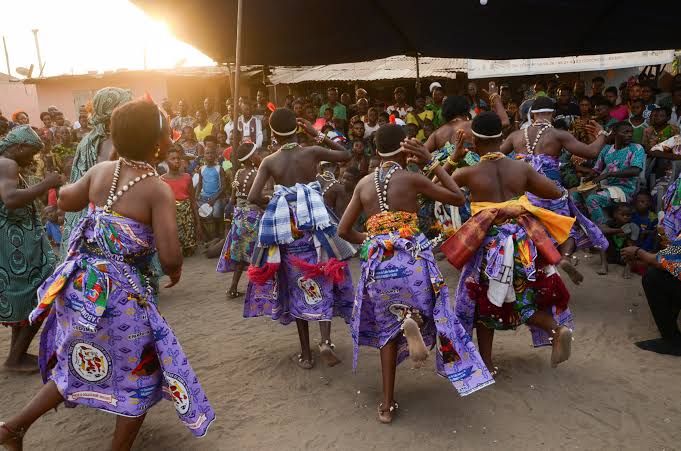
The Ouidah Voodoo Festival, held annually on January 10 in Ouidah, Benin, is a vibrant celebration of Voodoo, a traditional African religion with global influence. This national holiday honors the 60 million lives lost to the slave trade through rituals, dances, and animal sacrifices. The festival features colorful processions, drummers, and priests performing ceremonies that blend spirituality, philosophy, and community healing.
Visitors can explore the Python Temple and the Sacred Forest, where statues and shrines reflect Voodoo’s deep roots. Engaging with locals reveals the religion’s role in shaping cultures across the Americas and Caribbean. This immersive experience, set against Ouidah’s historical backdrop, offers a profound understanding of West African traditions, drawing cultural travelers to Benin’s spiritual heart.
1. Ghana’s Slave Castles, Cape Coast
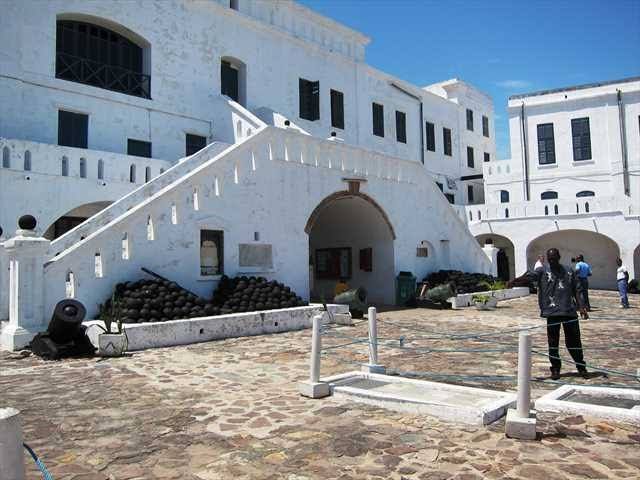
Cape Coast, Ghana, is home to the hauntingly powerful slave castles, UNESCO World Heritage Sites that stand as testaments to the transatlantic slave trade. Cape Coast Castle and nearby Elmina Castle, built by European powers, were holding points for enslaved Africans, with the “Door of No Return” marking their final departure. Guided tours explore cramped dungeons, punishment cells, and colonial quarters, revealing the trade’s brutal realities. Exhibits and storytelling sessions highlight the resilience of African communities and their descendants. The castles serve as places of remembrance, fostering reflection on shared history and human rights. This sobering yet essential experience draws cultural travelers to connect with West African heritage, offering a profound lesson in history and humanity that resonates long after the visit.

